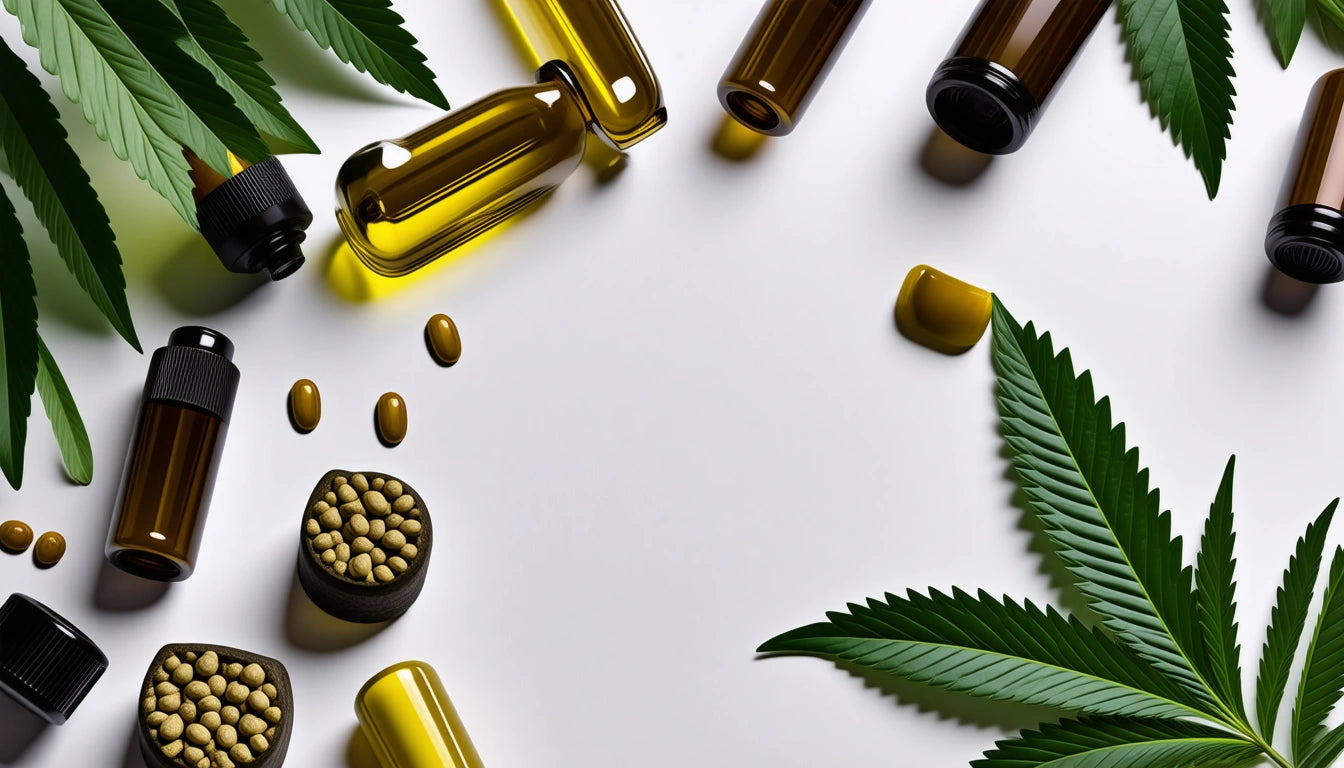Table of Contents
Understanding THC Distillate: Production, Uses, and Benefits
THC distillate represents one of the purest forms of cannabis extract available on the market today. This refined product has revolutionized how consumers experience cannabis, offering versatility and potency that few other extracts can match. For manufacturers and consumers alike, understanding what THC distillate is and how it's utilized has become essential knowledge in the evolving cannabis landscape.
What is THC Distillate: Definition and Properties
THC distillate is a highly refined cannabis extract that contains concentrated tetrahydrocannabinol (THC), the primary psychoactive compound in cannabis. Unlike other concentrates, distilled THC undergoes multiple purification processes to remove plant matter, fats, lipids, and other cannabinoids, resulting in a clear, viscous oil that typically contains between 85-95% THC.
This refined product is often referred to as "The Clear" due to its transparent appearance. The molecular isolation process strips away the natural terpenes responsible for flavor and aroma, leaving behind a product with minimal taste or smell unless reintroduced later in the manufacturing process.
According to this comprehensive guide on THC types, distillate represents one of the most versatile forms of cannabis concentrate due to its purity and adaptability across different consumption methods.
The Production Process: How Distillate THC is Made
The creation of THC distillate involves several sophisticated extraction and refinement steps:
1. Initial Extraction
The process begins with a primary extraction using solvents like butane, CO2, or ethanol to separate cannabinoids from plant material. This creates a crude extract that still contains many plant compounds.
2. Winterization
The crude extract undergoes winterization, where it's mixed with ethanol and frozen to separate and remove fats, lipids, and waxes.
3. Decarboxylation
The winterized extract is then heated to convert THCA (the non-psychoactive acid form) into active THC through a process called decarboxylation, as explained in this article on THC and THCA differences.
4. Distillation
Finally, the extract undergoes short-path or fractional distillation. This process uses precise temperature control to separate compounds based on their boiling points. The distillate is collected as it condenses, resulting in a highly pure THC oil.
Applications and Uses of THC Distillate
The versatility of THC distillate makes it a foundation for numerous cannabis products:
- Vape Cartridges: What is a distillate THC cartridge? It's simply a vaporizer cartridge filled with THC distillate, often with reintroduced terpenes for flavor. These cartridges are among the most popular cannabis products due to their convenience and discretion.
- Edibles: Distillate's lack of plant flavor makes it ideal for infusing food products without affecting taste. For manufacturers producing large batches, proper storage solutions like heavy-duty mylar packaging help maintain product freshness and potency during distribution.
- Tinctures: When mixed with carrier oils, distillate creates potent tinctures for sublingual administration.
- Topicals: Distillate can be incorporated into creams and balms for localized relief.
- Dabbing: Some consumers use distillate directly in dab rigs for high-potency inhalation.
The precise dosing capability of distillate makes it particularly valuable for medical applications where consistent potency is crucial, as noted in this resource on THC effects and benefits.
Benefits and Drawbacks of Distillate Products
Benefits
Distillate offers several advantages that have contributed to its popularity:
- Potency: High THC concentration provides strong effects with minimal product volume.
- Versatility: Can be used in virtually any consumption method.
- Discretion: Minimal cannabis odor makes for discreet usage.
- Precise Dosing: Consistent potency allows for reliable dosage control.
- Extended Shelf Life: The removal of plant materials increases stability and longevity.
Drawbacks
Despite its benefits, distillate has some limitations:
- Entourage Effect: The removal of other cannabinoids and terpenes eliminates the potential synergistic benefits of whole-plant consumption.
- Flavor: Without reintroduced terpenes, distillate lacks the characteristic cannabis flavor profiles.
- Production Complexity: The sophisticated equipment and expertise required for production make high-quality distillate expensive to produce.
Distillate vs. Other Cannabis Extracts
Understanding how distillate compares to other extracts helps consumers make informed choices:
- Full-Spectrum Extracts: Retain more of the plant's original compound profile but have lower THC concentration than distillate.
- Live Resin: Preserves the plant's original terpene profile for enhanced flavor but typically contains less THC.
- Isolate: Even more refined than distillate, isolate contains only THC molecules at 99%+ purity but lacks any supporting compounds.
For more details on how distillate compares to other potent forms of THC, this exploration of THC potency provides valuable insights.
Future Innovations in Distillate Technology
The distillate sector continues to evolve with several emerging trends:
- Terpene Preservation: New techniques aim to better preserve or accurately reintroduce strain-specific terpene profiles.
- Minor Cannabinoid Distillates: Beyond THC, manufacturers are creating distillates of CBD, CBG, and other cannabinoids for targeted effects.
- Automated Systems: Technological improvements are making distillation more efficient and consistent.
- Water-Soluble Formulations: Innovations in emulsion technology are creating water-compatible distillates for beverages and faster-acting edibles.
As explained in this comprehensive guide on distillate, the technology behind these products continues to advance, offering new possibilities for both recreational and medicinal applications.
Whether you're a producer looking to expand your product line or a consumer curious about what is distilled THC, understanding the science, applications, and benefits of distillate provides valuable insight into one of the cannabis industry's most versatile ingredients.











Leave a comment
All comments are moderated before being published.
This site is protected by hCaptcha and the hCaptcha Privacy Policy and Terms of Service apply.